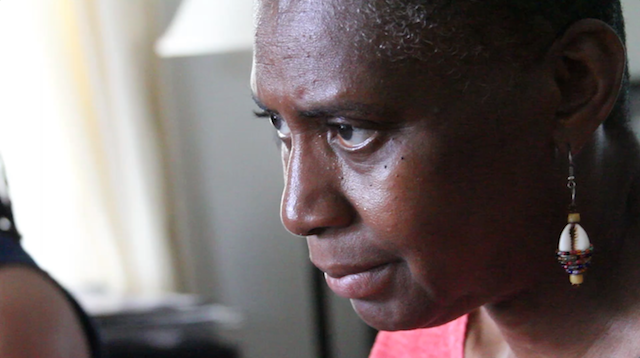
Eric Byler and I have been traveling around America with the goal of trying to understand why Washington is so gridlocked and the people apparently divided 50 years after the March on Washington. In Alabama, we encountered some dramatic expressions of that division. We also found people showing great leadership and working towards reconciliation such as Chief Kevin Murphy, the Montgomery Police Chief.
Eric Byler and I have been traveling around America with the goal of trying to understand why Washington is so gridlocked and the people apparently divided 50 years after the March on Washington. In Alabama, we encountered some dramatic expressions of that division. We also found people showing great leadership and working towards reconciliation such as Chief Kevin Murphy, the Montgomery Police Chief.
In Selma, we came across a situation where the people celebrate and honor two different versions of history of Selma and America. There is the community of people honoring the sacrifices made by people in 1965 on Selma’s Edmund Pettus Bridge as they tried to march to Montgomery from Selma for voting rights for all people in America and were brutally beaten, an event known as Bloody Sunday. Every year in the month of March, there is a celebration and a re-enactment of the march from Selma to Montgomery attended by people from across the country.
Then there is the community that honors the sacrifices made by people at the Battle of Selma exactly a hundred years before Bloody Sunday. Every April, they celebrate Confederate Memorial Day and organize a re-enactment of the Battle of Selma attended by people from across the country.
Although these historic events occur every year in Selma, they are largely organized and attended by two distinct communities of people.
Moreover, some members of these communities have been locked in a terrible conflict with protests, lawsuits, accusations of theft and vandalism and even physical confrontations. There is significant animus and this situation is reported in the national media as an ugly battle taking place in a socially regressive “deep south.” It’s clear that this open conflict is hurting Selma’s reputation and its economy.
There is clearly a social division as well as real differences of opinion about how to interprete American history. These narrative differences then impact laws and policies are made and upheld in our country. So, these stories are not just stories. They end up shaping public opinion, creation and interpretation of laws. In short, they affect our democracy and our mission to form a more perfect union.
For example, Chief Justice Roberts questions the need for an important component of the Voting Rights Act of 1965 because he believes that the “South has changed.” The future of Voting Rights Act, the crowning achievement of the civil rights movement, is unclear because the Supreme Court is reviewing a case (Shelby County, Alabama vs Holder) it. The fact that the Voting Rights Act passed in part because of the violent conflict that took place in Selma in 1965 initially brought us to the city in March, 2013.
Another example is that the stories that we tell about our history shape divided attitudes that people have about such critical matters as the future of our social safety net programs.
In Alabama, we’ve been fortunate to meet people with great hearts and admittedly some trepidation from both communities ready to do something about it. We’re encouraging members of these two communities we’ve met to come together to break bread, talk and listen as a first step. We are documenting our journey as we try to bring people in together for dialogue. We are at the beginning of our journey with events unfolding and relationships growing in real time.
We don’t know where this is headed, but we have great hope in what we’re seeing right now. With this video, we are giving you a snapshot of the situation in Alabama and we hope it inspires you to believe that we as individuals can take steps to heal from the wounds of the past and work towards a more perfect union.
Please support Story of America with a tax deductible donation.
